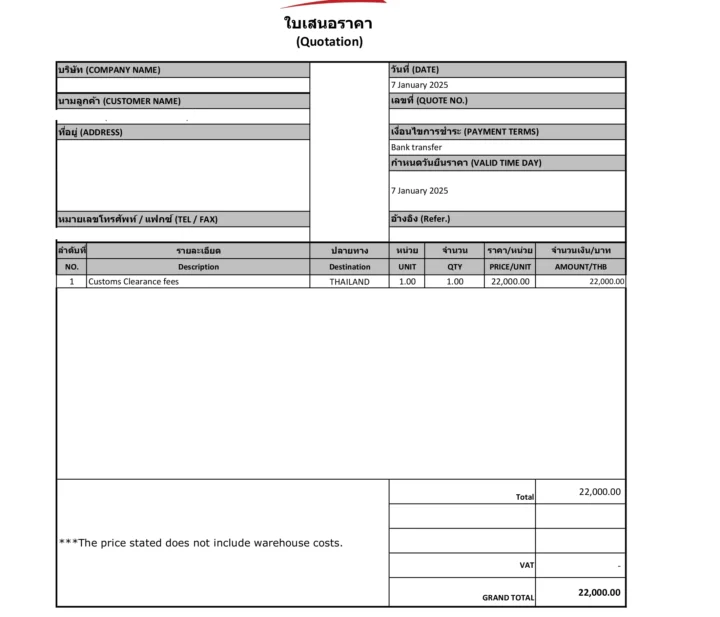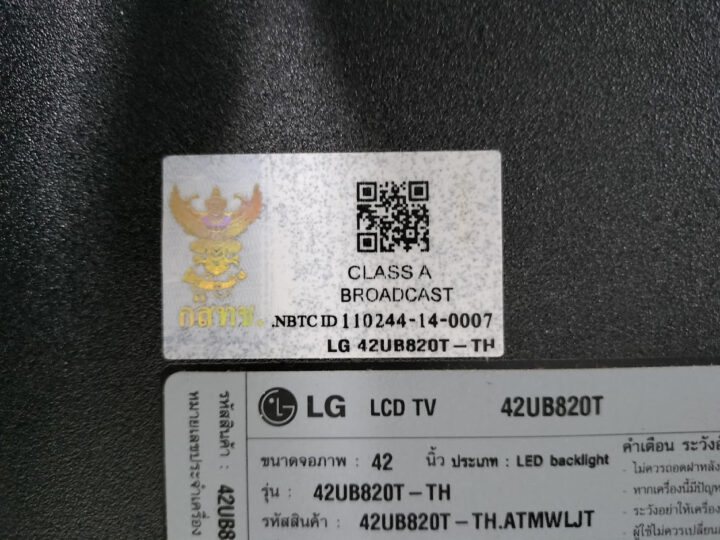We’ve been reviewing routers sent to us from China from time to time including Xiaomi Mi AX6000, GL.iNet GL-MT6000, NanoPi R5S, and others. In late 2024, I was offered to review the OpenWrt One and GL.iNet GL-X2000 “Spitz Plus” WiFi 6 and 4G LTE routers, but neither review will happen due to changes in regulations, or rather enforcement, that now makes it more complicated and expensive to import a router in Thailand since an NBTC (National Broadcasting and Telecommunications Commission) license is now required.
The Software Freedom Conservancy sent an OpenWrt One router through UPS at the end of October 2024, and received an email from the courier on November 2 that read in part:
Due to your shipment is ROUTER, must use import license from. Therefore, UPS we unable to apply import license for customers.
Please find the other agent to clear this shipment form Thai Customs detail below.
Please select an option that is most convenient for you below;
Option 1 An alternated broker. You can find a alternate broker by google website (Keyword : Shipping at Suvarnabhumi Airport) Link : [google.com]
Option 2 Reject this parcel to abandon by Thai Customs. (Thai Customs do not allow to return package to sender, so they will abandon this shipment only)
So I was given two “options”: get one license from the NBTC, the equivalent of the FCC in Thailand, or abandon the package. So I asked Suthinee to help me and contact some of the companies listed on Google but nobody answered her emails probably because we only wanted to import a single router…
A few weeks later, I received an email from GL.iNet related to the shipment of the Spitz Plus router entitled “GL.iNet: Spitz Plus Beta Test Follow Up on NBTC License”:
Thank you for your interest and support for our new product, Spitz Plus.
I wanted to check if you have the NBTC license. Due to the regulations of the shipping carrier and customs, we need your assistance in providing this document. This license is essential for processing customs; without this, the package cannot clear customs, which could lead to the goods being destroyed or returned to the us.
If you don’t have the license, could you please provide an alternative address?
That’s when I understood the NBTC license requirement was now something serious and it would likely impact all router shipments to Thailand. I would have understood the need for getting a license when importing a container of routers, but I was surprised you’d need one for just one sample since it may require lab testing… After all, if somebody takes a trip abroad and buys a router there, he/she will not be required to apply for an NBTC license.
I eventually asked Suthinee to call one of the NBTC offices and try to find out if there could be an exemption for review/testing/software development since I learned Universities can get a “research and development” license. She spent 10 to 15 hours working on the matter contacting officers giving contracting and somewhat vague directions. We eventually managed to get a quotation to get an NBTC license for the OpenWrt One from a shipping company. Total: 22,000 Baht or about $650 US excluding warehouse fees charged by customs. We were also told about potential fines for not requiring an NBTC license before importing the router.
It would also have been possible to handle the process ourselves at a lower cost. It would have started with a document from the NBTC that costs around $40. But that’s only a start and we were told we would need to request an import permit, a sales permit, and an industrial standard certificate from various governmental entities and whatever documents may be required by customs. We felt the chance of failure was high going at it on our own, so we gave up. For reference, the OpenWrt One sells for $89 so the license is many times the price of the router. This is required for each model of router, and the GL.iNet Spitz Plus license would have been more complicated and expensive since it supports 4G LTE cellular requiring additional documents.
But why? Short answers: scammers in call centers. It’s only after discussing with a person in Chiang Mai that I understood why the enforcement of the NBT license for routers may have been made stricter in recent months even when importing just one unit. There’s been news about call center scams that use routers in Thailand close to the border with Myanmar where scammers are operating. They proceed that way since law enforcement is much more difficult that way since the police from Thailand, Myanmar, and the country’s victim (who was promised work) need to cooperate, lawyers from all countries must be involved, documents must be translated into all languages, and so on. That makes the whole process super slow and the people being the scam have time to escape justice at least for a while. There was a high-profile case involving Wang Xing (also known as Xing Xing), a young actor from China, that was recently freed after being taken hostage by call center gangs. It’s not good for Thailand’s image so something had to be done.
But wait… What does it have to do with the NBTC license? Easy. When a device gets an NBTC license it also gets a sticker with an NBTC ID number that can be tracked to the company selling the device. There’s one on my phone and on the back of a TV. Somehow the broadband router in my house does not have one. Maybe it’s on the board or the ISP removed it…
So I guess the idea is once the police track the company selling the router, they can also track the person who purchased it. It only works if they don’t remove the sticker unless there are some other hidden methods… The NBTC has also taken other actions like redirecting base stations in Thailand so they don’t broadcast to areas in bordering countries, and police have arrested foreign scammers operating equipment without NBTC licenses in Bangkok. So CNX Software’s router reviews are just collateral damage…
Couriers like DHL, FedEx, and UPS work closely with customs, so it’s not possible to import routers for review without an NBTC license, and the costs make it prohibitive. There are usually ways to ship devices with small shipping companies often using land borders (grey shipping), but we’re not going to play that game here since the government seems serious and the police are involved. That means there won’t be router reviews on CNX Software for the next few years unless the vendor has a local distributor or sponsors the NBTC license. We had a similar issue with TV boxes in 2017, where we had to stop because of the requirement for an NBTC license to fight against piracy. We’ve recently been told it was not enforced anymore, but we confirm this since we don’t typically review TV boxes anymore.

Jean-Luc started CNX Software in 2010 as a part-time endeavor, before quitting his job as a software engineering manager, and starting to write daily news, and reviews full time later in 2011.
Support CNX Software! Donate via cryptocurrencies, become a Patron on Patreon, or purchase goods on Amazon or Aliexpress






